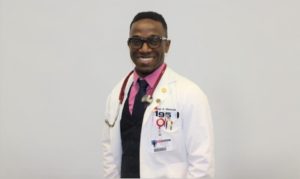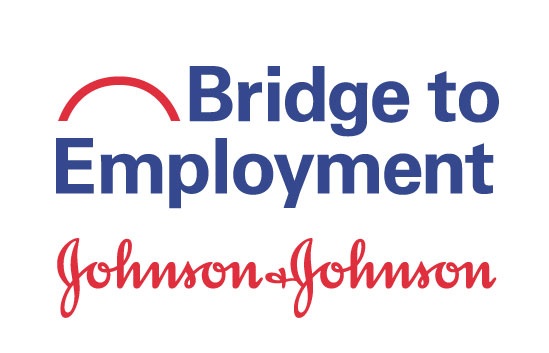New Brunswick, NJ
Alumni Feature
Victor Mensah

Victor Mensah, about to begin his final year at Robert Wood Johnson Medical School, reflects on his big takeaways from the Bridge to Employment program (BTE). We caught up with him in April 2020, amid the coronavirus pandemic in New Jersey.
Victor started Bridge to Employment as a 13-year-old at the suggestion of his father. “Why go to school on a Saturday, when Monday to Friday was enough?” he asked himself. He got his answer when he doubled his SAT score the second time he took it and reflects, “BTE helped me up my game.” Victor also credits his mentors, an integral part of the BTE program, with contributing to his BTE success. Any sort of difficulty as a young adult is worth talking to mentors, reflecting, “They understand what being young is like, what being confused is like. They have all been there and are ready to give students and young adults perspective on what they have seen in their lives and careers.”
Victor’s high school academic performance and commitment to BTE landed him a place at Rutgers University, where he majored in biological sciences and graduated in four years. Motivated by a tragic experience in his youth, Victor was inspired to go to medical school, which he began in 2016. Victor said he wanted to go into medicine “because it was bigger than just ‘get a job.’” His BTE classmates were interested in business, engineering, and law, which to him meant long periods of sitting behind a desk. “Medicine, he said, “is based on the impact you have on a personal basis.”
In the early spring of 2020, Victor experienced the Covid-19 pandemic firsthand while he was on his Emergency Psychiatry rotation, putting him daily in the hospital’s Emergency Department. He had heard rumors about a disease that started in China and was circling the globe, but in January, there was little evidence of what was to come. By February, a few new precautions were in place in the Emergency Department, but it was hard for Victor and his colleagues to tell what was normal seasonal flu apart from this new strain. On March 17, The Association of American Medical Colleges cancelled all medical education nationwide. While all students had to leave campus and go home, “sitting on the sidelines is not in our nature,” Victor comments. He and many of his colleagues are currently doing outreach to elderly citizens and patients in their areas, conducting phone check-ins on other vulnerable groups, as well as shopping for them. Some fourth-year medical students were even invited to start their residencies early, so they could be at work in the hospital and assist in frontline efforts.
Despite the risks, Victor is committing to emergency medicine as his specialization. The Covid-19 experience, while frightening, has helped reaffirm his commitment to healthcare and patients, adding, “After this is over, I look forward to sitting with a patient and talking with them. I am looking forward to calming people down.” If students like Victor Mensah can find ways to remain positive and perform their duties in this environment, our physician workforce will be better for it.
